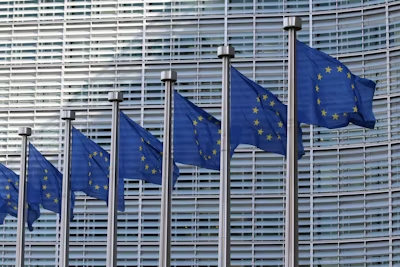
Latin America, blessed with abundant wind resources, is poised to become a global leader in renewable energy. However, realizing this potential requires a comprehensive approach to address the challenges and opportunities that lie ahead. A new project aims to guide policymakers and stakeholders across the region, offering insights and strategies rooted in local experiences and best practices. By overcoming barriers and fostering collaboration, Latin American countries can accelerate their transition to a sustainable energy future. Key recommendations of the project include streamlining permitting processes, prioritizing public interest and equitable benefit-sharing, and building trust through early and continuous engagement with local communities. By focusing on these areas, Latin American governments can create an enabling environment for wind energy development, attracting investment, and driving economic growth.

The UK Ministry of Defence has announced a £40 million investment in a new satellite, named Juno, to enhance the country’s intelligence, surveillance, and reconnaissance (ISR) capabilities. The satellite, developed by Surrey Satellite Technology Ltd., is expected to launch in 2027 and will provide high-resolution imagery of the Earth’s surface. This advanced technology will support a range of military operations, including monitoring adversary activities and contributing to global security efforts. Juno will join Tyche, the UK Space Command’s first satellite, which successfully launched in August 2023. Together, these satellites will form part of a constellation that will deliver critical information to support UK defense and security interests. The investment in Juno is expected to create around 200 skilled jobs in the UK space sector, boosting the nation’s economy and strengthening its position as a global leader in space technology. Minister for Defence Procurement and Industry Maria Eagle said:“The contract for Juno shows the UK’s commitment to grow one of the most innovative and attractive space economies in the world and keep our competitive edge in space science and technology. Juno will not only support Armed Forces personnel deployed globally, but also support highly skilled jobs, delivering on the government’s growth…

The World Bank, established in 1944, is a vital international financial institution dedicated to reducing poverty and promoting sustainable economic development. Headquartered in Washington, D.C., the World Bank comprises two main institutions: the International Bank for Reconstruction and Development (IBRD) and the International Development Association (IDA). The World Bank provides financial and technical assistance to developing countries, enabling them to implement projects that foster economic growth, improve infrastructure, and enhance social services. By leveraging its extensive network and resources, the institution aims to create a more equitable world where all individuals have access to opportunities that can improve their quality of life. The World Bank’s mission is to eradicate extreme poverty and boost shared prosperity. Over the decades, the institution has evolved significantly, adapting its strategies to meet the changing needs of its member countries. It operates on the principle of collective action, bringing together governments, civil society, and the private sector to address complex development challenges.

The European Commission has approved the Reform Agendas of Albania, Kosovo, Montenegro, North Macedonia, and Serbia, following positive opinions from EU Member States. These ambitious reform plans outline the socio-economic and fundamental reforms that the five Western Balkan governments will undertake to spur growth and align with the EU. This crucial step enables the disbursement of funds from the EU’s €6 billion Reform and Growth Facility, which will be made upon completion of agreed reform steps. Commission President Ursula von der Leyen said: “I’m impressed by the work of our Western Balkan partners on their Reform Agendas. It shows that they are committed to the success of the Growth Plan. It’s our roadmap to bring the economies of the Western Balkans closer to ours. And to give their companies the access and the means to compete on our Single Market. Everyone benefits, and it’s a big leap forward towards the European Union”. The Reform Agendas focus on key areas such as rule of law, governance, digital and green transitions, human capital development, and the business environment. Each beneficiary country has also proposed a list of indicative investments to be funded under the Facility, which are aimed at unlocking socio-economic growth. The Commission…

The European Commission has selected 85 innovative net-zero projects to receive €4.8 billion in grants from the Innovation Fund. This significant investment aims to accelerate the deployment of cutting-edge clean technologies across Europe. For the first time, projects of various scales, from large-scale infrastructure to smaller-scale pilots, and with a focus on cleantech manufacturing, have been awarded funding under the 2023 call for proposals. This marks the largest funding round to date for the Innovation Fund, bringing the total amount of support to €12 billion. The selected projects span 18 countries and cover a wide range of sectors, including energy-intensive industries, renewable energy, energy storage, industrial carbon management, net-zero mobility, and buildings. These projects are expected to enter into operation before 2030 and reduce emissions by approximately 476 million tonnes of CO2 equivalent over their first ten years of operation. The EU’s Innovation Fund is a key tool in supporting the bloc’s ambitious climate goals. By investing in groundbreaking technologies, the EU aims to strengthen its industrial base, create jobs, and foster economic growth. The selected projects are expected to contribute to the following EU policy objectives: The selected projects were evaluated based on their potential to reduce greenhouse gas…

The Ugandan government has taken significant steps to enhance the effectiveness of public investment management. The Ministry of Finance, Planning, and Economic Development, in collaboration with the Public Investment Management (PIM) Centre of Excellence, organized a conference to discuss strategies for improving project execution. The conference highlighted the importance of public investment in driving Uganda’s development and building essential infrastructure, human capital, and institutions. The Permanent Secretary and Secretary to the Treasury, Ramathan Ggoobi, emphasized the need for government investments to be worthwhile and contribute to national development. “Government is taking seriously the PIM process,” said Ggoobi, adding that the Finance Ministry has developed a framework for tracking project implementation. He said the framework standardizes and provides strategic direction by facilitating a culture of accountability, transparency and continuous improvement during project execution. “To implement this framework, the Office of the Head of Project Execution is to be created to use the framework in collaboration with other M&E players such as OPM, OP and responsible departments in the Ministry.” The government has recognized the importance of the PIM process and has taken steps to improve its effectiveness. The Finance Ministry has developed a framework for tracking project implementation, standardizing procedures and facilitating…

President Shavkat Mirziyoyev got acquainted with the presentation of projects for the production of electricity from solid waste. Uzbekistan generates 14 million tons of waste annually. However, only 4-5 percent of it is recycled. More than 7 million tons of greenhouse gases and 43 thousand tons of toxic leachates generated at waste landfills are emitted into the atmosphere and penetrate the soil. By recycling waste, it is possible to both reduce its impact on nature and make a profit. For this purpose, the Ministry of Ecology, Environmental Protection and Climate Change, together with foreign investors, has developed a number of projects. It is planned to build 8 waste incineration plants and process landfill gas at the Akhangaran landfill, investing about $1 billion 300 million. For example, two plants will be built in Andijan and Tashkent provinces through direct investment of $350 million by the Chinese company “CAMC Engineering”. They will process 4 thousand tons of waste per day and generate 630 million kilowatt-hours of electricity per year. Another Chinese company, “Shanghai SUS Environment|, has also shown interest in this area. It plans to invest $310 million in direct investments and build two plants in Samarkand and Kashkadarya regions. They will…

GHD, a global professional services company, and Costain, the infrastructure solutions company, have successfully delivered a transformative approach to border processes post-Brexit through the Cabinet Office’s Port Infrastructure Fund (PIF) project. Their holistic assessment has played a pivotal role in reshaping the UK’s border trade approach and enhancing international supply chain security. Appointed by the Cabinet Office to address the challenges and ensure the PIF aligns with the Border 2025 strategy, GHD and Costain leveraged their joint expertise in supply chain, logistics, port operation, trade facilitation, and data analytics to deliver a comprehensive solution. By integrating data from government sources, third parties, and innovative new solutions, the project team provided invaluable evidence and intelligence to inform decision-making. The partnership’s efforts were instrumental in the successful delivery of the £200 million PIF on time and within budget, streamlining processes and delivering significant savings for the government and the supply chain industry. Additionally, the initiative reduced potential annual costs to the supply chain by £1 billion through refined policies to minimize border friction. To ensure a lasting legacy of built knowledge, GHD and Costain devised a comprehensive Borders Curriculum to upskill Cabinet Office personnel, leading to a 60% increase in their understanding…

The Frisco City Council has approved a Master Development Agreement that provides up to $113.4 million in funding for the development of The Mix, a vibrant mixed-use project in the city. The Mix, located at the southeast corner of Lebanon Road and Dallas Parkway, will feature 2 million square feet of new Class-A office space, 375,000 square feet of retail space, two hotels, townhomes, urban living units, a large park, and over 16 acres of open space. The agreement provides performance-based grants from the City of Frisco, the Frisco Economic Development Corporation (FEDC), and the Frisco Community Development Corporation (FCDC) to support Phase 1 infrastructure, including property remediation and an underground parking garage. Incentives will be paid to The Mix Partners, LLC upon completion of specific milestones, including: The $113.4 million agreement includes a $10 million reimbursement-based infrastructure grant, approved by the Frisco EDC board, to accelerate the construction timeline for the upscale grocer and ensure permanent occupancy before disbursement. “This is a significant milestone for The Mix and the city of Frisco,” said Frisco Mayor Jeff Cheney. “The project will bring new opportunities for growth and enhance the quality of life for residents.” “Frisco EDC is proud to play…

Japan has made a significant investment of $43 million in Ecuador’s Chachimbiro geothermal project, a key step towards diversifying the country’s energy sources and enhancing its energy independence. The Chachimbiro project, located in the Imbabura province, involves the development of a 50-MW geothermal power plant. This project is crucial for Ecuador’s transition to renewable energy and will contribute to the country’s efforts to reduce dependence on hydroelectric power. The investment was formalized at a ceremony in Quito attended by high-level officials from Ecuador and Japan. This collaboration underscores the importance of diversification within Ecuador’s energy portfolio. Key Benefits of the Chachimbiro Project: The Chachimbiro project will reduce Ecuador’s reliance on hydroelectric power, providing greater stability and consistency in electricity supply. The project will save Ecuador approximately $147.9 million in its first ten years of operation through reduced reliance on fossil fuels. The project supports Ecuador’s commitment to cutting greenhouse gas emissions and aligns with global climate goals. The project may lead to local employment opportunities and facilitate the transfer of advanced technologies. The Chachimbiro project is technically and financially supported by the Japan International Cooperation Agency (JICA), which ensures that the development adheres to international sustainability standards. JICA’s involvement includes…










